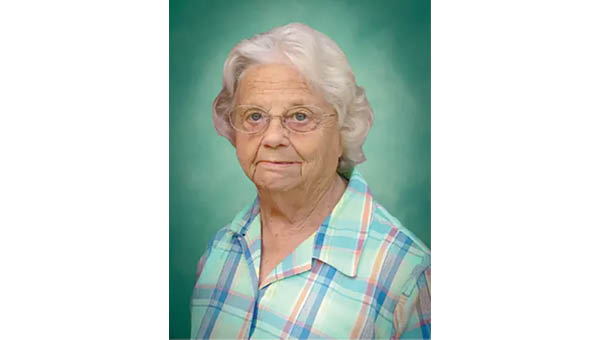Florida enacts heatstroke protections for student-athletes
Published 3:51 pm Wednesday, June 24, 2020
|
Getting your Trinity Audio player ready...
|
BY BOBBY CAINA CALVAN AND BRENDAN FARRINGTON
THE ASSOCIATED PRESS
TALLAHASSEE, Fla. (AP) — A grieving mother’s plea to Florida lawmakers was fulfilled when Gov. Ron DeSantis signed a measure requiring schools to do more to protect student-athletes from heat strokes, including having water-filled tubs at games and practices to rapidly cool the body.
Laurie Giordano had lobbied the Florida Legislature to approve legislation that would require high schools to act more quickly when student-athletes show signs of heatstroke and other heat-related stresses.
Trending
“Pushing for measures to protect other students has been my way of keeping his legacy going, so the protections my son should have gotten will be in place now,” said Giordano, who awoke Wednesday — her birthday — to the news of the bill signing.
“I can’t think of a better gift to receive this morning,” she said.
The new law, known as the Zachary Martin Act, was among 23 bills signed by DeSantis late Tuesday, including measures that make it illegal to falsely claim the need of a support animal, provide protections for pregnant women in state prisons, increase penalties for “unlawful exposure of sex organs,” and require schools to teach about the Election Day massacre of African Americans in Ocoee a century ago.
The Ocoee measure, part of a broader bill that also brings attention to the atrocities of the Holocaust, requires the Department of Education’s African American History Task Force to examine ways the Ocoee Election Day Riots could be incorporated into the state’s Black history curriculum. It also directs the Department of State to find ways to promote the massacre in the state’s history museum and other museums across the state.
The massacre of as many as 60 Black people happened in 1920. The mob that carried out the killings then set fire to all Black homes in Ocoee, as well as two churches and a meeting hall.
DeSantis also signed a bill that requires landlords to allow tenants to keep emotional support animals but creates penalties for people, including fines and jail time, for those who falsely claim the need for such an animal to avoid pet restrictions.
Trending
Another new law will ensure pregnant women in prisons aren’t held in restrictive housing. The bill was a response to a recent case in which a woman gave birth while alone in a Broward County jail cell.
The governor also signed a bill that increases penalties for the “unlawful exposure of sex organs” and makes it easier for police to make arrests in those cases. The new law also clarifies that being naked in places designated for that activity isn’t illegal.
The athlete safety bill is named after Giordano’s 16-year-old son, a strapping 300-pound (136-kilogram), 6-foot-4 (193-centimeter) offensive gridiron lineman who collapsed during practice three years ago. He had just finished running sprints with his teammates in the sweltering South Florida heat.
After some confusion on the sidelines, he was rushed to the hospital, where he died 11 days later.
After her son’s death, Giordano created a foundation in his name that has donated dozens of cooling tubs to schools across Florida.
With the governor’s signature, public schools will be required to have a tub or other large container filled with cold water at the sidelines during all games and practices.
Schools also will be required to have defibrillators to resuscitate stricken athletes. The new law also requires schools to train personnel on how to recognize signs of heat-related ailments, including potentially deadly heat strokes, and to take life-saving actions.
The law will go into effect July 1, but because of the coronavirus pandemic, it is still uncertain whether some sports programs will resume when Florida’s public schools reopen in August.
Some schools have been allowed to begin some training, but must comply with social distancing and sanitation guidelines to keep the virus from further spreading.
Even if heatstroke does not lead to death, it can cause severe damage to the brain or other internal organs. Florida’s scorching summer temperatures and intense humidity have contributed to hundreds of cases of heat-related injuries.
In recent years, school districts across the country have begun taking steps to better protect their student-athletes but many still have much to do, according to a recent study by the Korey Stringer Institute at the University of Connecticut.
According to a legislative analysis produced for the bill, Florida led the country in heat-related deaths among student-athletes, with at least four since 2011. More than 460 student-athletes in Florida were treated for exertional heatstroke during the 2017-18 school year.
The National Center for Catastrophic Sports Injury Research said 47 high school football players died from heatstroke or related complications between 1995 and 2019. Nearly all of those deaths happened during routine practices, according to the center.
With Florida’s law soon to be in place, Giardano said she wants to push for a federal law that would expand protections across the country.





